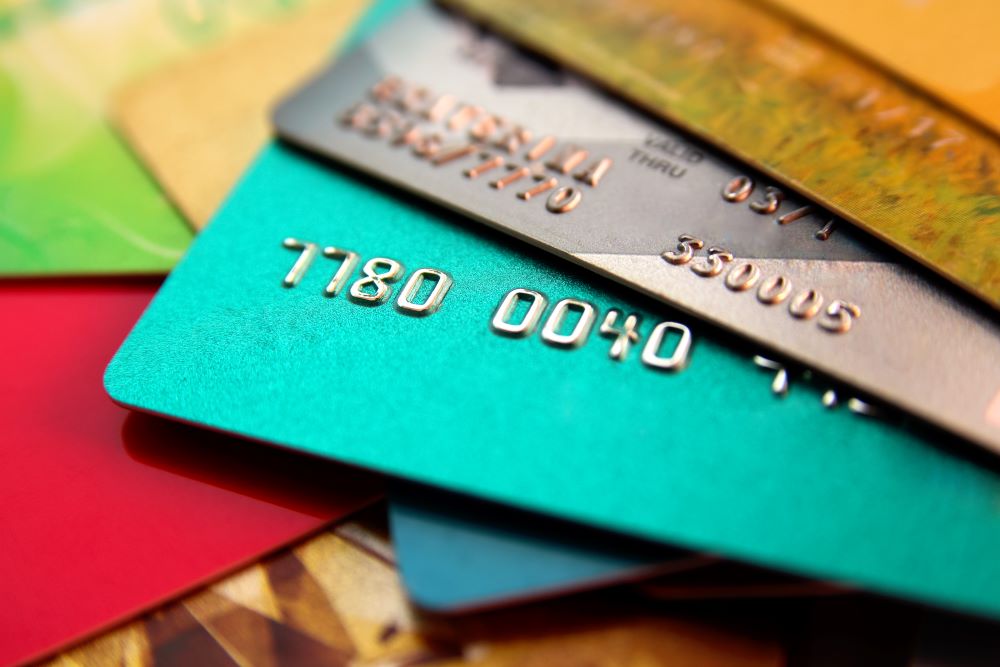Once your child turns 18, they are legally able to open a credit card in their own name. A starter credit card is a great tool for responsible young people to establish credit history and work toward a strong credit score.
But for young people with limited financial experience, opening and managing a credit card can seem complicated. Here’s how to help your child get a starter credit card.
Teach Your Child the Basics of Credit
Before your child gets a credit card, make sure you teach them the basics of credit. They should understand how credit works and the benefits of a strong credit score, including the ability to buy cars or homes, take out loans and even land a job or get an apartment.
Most importantly, your child should understand the five factors that go into a credit score and how credit cards come into play:
- Payment history is the most important factor, and a single missed or late payment can negatively affect your child’s credit. They should understand the importance of paying credit card bills – and all other bills – on time.
- Credit utilization is the amount of available revolving credit that is tied up in debt. It’s a good idea for your child to maintain a low balance on their credit card and stay far away from the credit limit.
- Age of accounts is also an important factor. The longer your child keeps their credit card open and in good standing, the better it can be for their credit.
- Credit mix looks at the types of credit a person holds, including revolving and installment credit. At first, your child may only have a credit card (revolving credit), but over time they may add installment credit into the mix (home loan, auto loan, etc.).
- New credit is the number of new accounts that have been opened and the number of recent hard inquiries on a credit report. Your child should avoid opening too many accounts or submitting too many credit applications in a short time frame (beyond shopping around for the best rate).
Your child also needs to understand how to best manage their credit card. They should know that any unpaid balance can incur interest. They should also know that late payments can hurt their credit and cost them money in late fees. Ideally, your child should keep their balance low, pay it off in full each month to avoid interest and always make payments on time.
Find the Right Credit Card
Qualifying for a credit card can be tough when you have no credit history, but there are starter cards out there for people with limited credit. Here are two of the best options:
- Secured credit cards require an upfront security deposit that equals the credit limit on the card. For example, a $300 security deposit would open a credit card with a $300 limit. These cards are easier to qualify for, but they can be used to make purchases and establish credit just like any other card.
- Student credit cards are available to enrolled college students. They typically have low credit limits but are easier to qualify for than high end credit cards, and they may even offer monetary incentives for earning good grades.
When evaluating cards, look for options with minimal fees and favorable terms. Your child should worry less about bells and whistles like rewards and worry more about getting the lowest possible interest rate.
Should You Add Your Child as an Authorized User or Co-Sign Their Credit Application?
Alternatively, you can help your child establish credit by adding them as an authorized user to your own credit card or co-signing their credit card application. But these strategies can come with some added risk.
Adding your child as an authorized user essentially just puts their name on your card and allows them to piggyback off your credit. You should check if your card issuer reports card activity for authorized users.
But if you or your child uses the card irresponsibly – late payments or maxing out the card, for example – it could negatively impact your and your child’s credit.
Co-signing your child’s credit card application can use your own credit history to help your child qualify for a credit card and/or get them lower interest rates. But, you are essentially taking shared responsibility for your child’s debt. If your child makes a late payment, maxes out their balance or gets their account sent to collections, you can be equally liable for the debt and your credit could take a major hit.
Before you add your child as an authorized user or co-sign their credit card application, make sure you fully understand the risks you are taking and explore other avenues as well.











